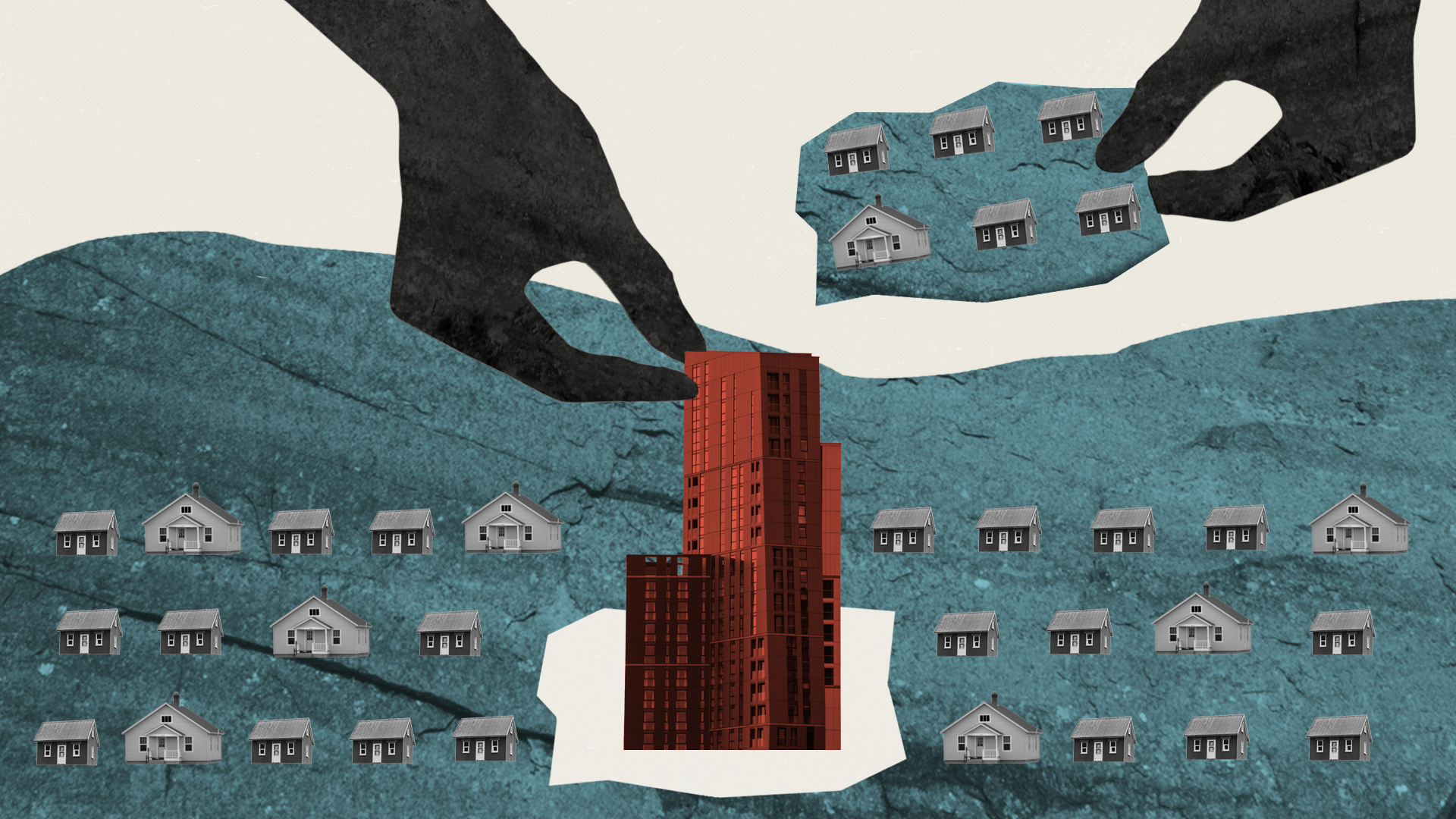For 50 years, Charlie Birnbaum’s family lived at 311 Oriental Avenue in Atlantic City, New Jersey, in the house Charlie’s parents purchased after escaping Nazi Germany. For Birnbaum and his family, the house had been a refuge and source of strength in tumultuous times. All of that changed in 2012, when the New Jersey Casino Reinvestment Development Authority (CRDA) threatened to seize Birnbaum’s home and transform the property into a mixed-use development.
The Supreme Court’s 2005 Kelo v. New London decision made it easier for governments to take property
A legal statute known as eminent domain allowed the CRDA to seize Charlie’s private property for “public” use. According to the Fifth Amendment of the U.S. Constitution, as long as the government fairly compensates citizens for seized property, the process is perfectly legal. However, the Fifth Amendment specifically states “nor shall private property be taken for public use, without just compensation.” In Charlie’s case, the “just compensation” offered was over $200,000. He politely declined. Though the number was based on a “fair market value,” the house was worth more to Charlie. After all, it was his home.
The government often frames eminent domain as a necessary evil, a rule that gives authorities the right to redistribute private land, putting it to use for roads, schools, or hospitals. But should the government ever be allowed to seize property from a citizen who is unwilling or unable to sell? When the government is granted this power, people’s rights are inevitably trampled. Plus, the rationale for the seizure isn’t always clear. In one instance, the government might use seized property to benefit the public at large; in another instance, the benefits might end up in the hands of special interests—say, the owners of a casino.
According to the U.S. Department of Justice, “Eminent domain has been utilized traditionally to facilitate transportation, supply water, construct public buildings, and aid in defense readiness.” Even proponents of eminent domain wouldn’t consider a casino a “public benefit,” but the inevitable consequence of empowering local governments to seize valuable property is corruption and cronyism.
The Institute for Justice (IJ) estimates that between 1998 and 2002, the government used or threatened to use eminent domain for private gain over 10,000 times. That includes stories like the eviction of four elderly sisters from their home in Bristol, Connecticut to build an industrial park; a woman in her 80s forced out of her Bremerton, Washington home for an auto dealership; and a Florida family’s home confiscated so a golf course manager could live there. Far too often, government agencies use their power to benefit powerful corporate interests at the expense of ordinary Americans who rarely have the time, money, or resources to fight the state.
Who else does eminent domain hurt?
IJ has studied the effects of eminent domain seizures and discovered that they disproportionately affect minorities and the poor. Those living at or below the poverty line make up 16 percent of the US population, but they make up 25 percent of the people subjected to eminent domain. Additionally, 45 percent of the general population are minority residents, but 58 percent of those affected by eminent domain are minorities. Eminent domain disproportionately targets those who are least able to fight back. It’s one of our country’s most cruel and regressive policies.
Backlash from Kelo v. New London resulted in 44 states taking action to reform eminent domain laws themselves. Still, states like Hawaii, Massachusetts, Arkansas, Mississippi, Oklahoma, New Jersey, Rhode Island, and New York all received F grades in IJ’s eminent domain report card because they did nothing to combat eminent domain abuses. On the other hand, states such as Florida and New Mexico strengthened the laws protecting their citizens against eminent domain, setting a clear example of what can be done. For example, Florida created a ten-year waiting period for private transfers from one owner to another for land taken by eminent domain. This reduces the incentive for private developers take land by force, since they would have to wait a decade before starting their project. But an abuse delayed is still an abuse. And while many states have made impactful reforms, it’s not enough. Listening to the experts would help. IJ has model legislation for states to utilize. The Wyoming legislature used it almost verbatim.
Something has to change
The government has many jobs that it needs to accomplish, but it can’t trample citizens’ rights in order to do them. The practice of eminent domain is in direct opposition to the role government should play in people’s lives. It enables the government and crony private interest groups to take advantage of those who are less fortunate. To Charlie, Susette, and the thousands of others who have been negatively affected by eminent domain, it’s more than just a home or a business being threatened, it’s a part of their lives that they may never get back.
